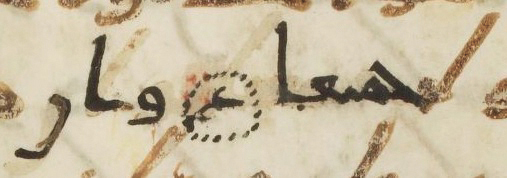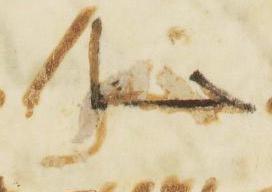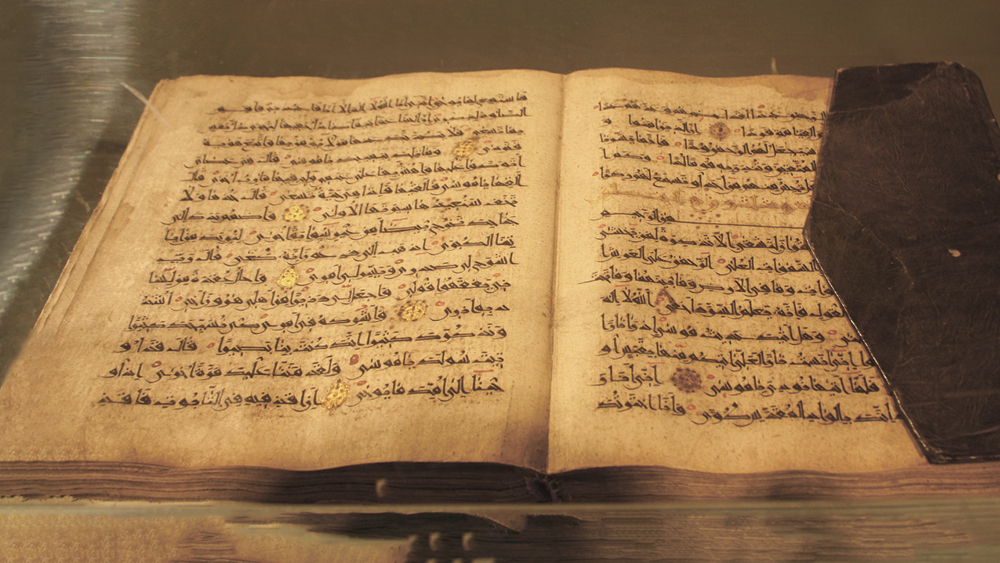The Koran’s complicated history
Richard Shumack on putting a religious text to the critical tests
The Bible we have in our hands has a history. It didn’t simply drop out of heaven as a complete book (in the King James Version, no less). Instead, it is a collection of writings by various inspired, but very human, authors over literally thousands of years who themselves often drew on other human sources.
We know this because scholars, both believing and unbelieving, have delved very deeply into this history. Particularly over the last hundred years, various geeky techniques (such as source, text, form and literary criticism) have been rigorously turned upon the sacred texts of the Christians to work out just where the various books fit into history.
In contrast to the Bible, virtually no-one had turned the tools of modern text, source, and historical criticism upon the Koran.
For some Christians, this sort of research was (and perhaps still is) unsettling. Some saw it as irreverent and unnecessary to prod and poke God’s word in these sorts of ways. Others found it hard to face the idea that their Scriptures were not as pristine as they imagined (for example, that we simply don’t have a perfectly preserved text), or that the four gospel writers drew on other earlier, and lost, sources. It can be disturbing to have one’s simple faith stretched by encountering the rich and complex story of how we ended up with the contemporary Bible.
However, close examination can also be deeply affirming. Asking difficult and new questions of our core beliefs can lead us to find even more evidence that our faith is trustworthy. For me, this is certainly the case with the Bible. Whatever complexities, all this research has shown that there are very good reasons for treating the books of the Bible as historically reliable.
Of course, Christians are not alone in grounding their faith in the reliability of a sacred text. Millions of Muslims around the world similarly trust that the Koran is historically trustworthy. Indeed, here the claims of Islam are much stronger than those of Christianity. For Islam, the Koran is a perfectly pristine text. It is a miraculous revelation that, quite literally, was handed down intact from heaven and was recorded authoritatively in texts that display no variations or errors of any kind.
Until very recently, this account largely went unexamined. It was accepted unquestioningly by Muslims and uncritically by most scholars. This is not because these claims had withstood scrutiny. Instead, its acceptance grew out of a combination of uncritical Muslim piety and academic indifference. As a result – and in contrast to the Bible – virtually no-one had turned the tools of modern text, source, and historical criticism upon the Koran. For close to 14 centuries, the earliest copies of Islam’s scriptures lay unquestioned and unexamined in libraries throughout the world.
Until now. The last few decades have seen an extraordinary leap in critical examination of the Koran. For the very first time this ancient text is being scoured for a range of features including: evidence of intentional changes, hints of human source material, as well as clues to where its language and historical references locate it. Unsurprisingly, given their interest in establishing what is Scripture and their skills developed examining the Bible, Christian scholars, including Australians, are in the vanguard of this research renaissance.
The results of these efforts are intriguing. It is becoming increasingly clear to the global scholarly community that the traditional story of the Koran’s origins simply cannot be correct. Let me highlight just a few of the new findings.
Far from being pristine texts, early Korans unquestionably display intentional changes. Some are additions, some are erasures, some are both.
Here’s just a few (very clear) examples of variants:

An example of erasure and overwriting from an ancient Koran manuscript called BnF 328 (held in the French National Library), found in Surah 3:171.

Another example from the same manuscript, in Surah 4:71.

And in Surah 6:44.
To be clear, this manuscript is no anomaly: every single early Koran that has been examined is riddled with these sorts of deliberate modifications. Perhaps there was a pure original text – but if there was, we have no evidence for it.
In another ground-breaking study, religious philosopher Dr Andy Bannister used computer analysis to search the Koran for evidence of oral formulas. Oral formulas are word patterns typically used in storytelling, such as “once upon a time,” or “and they lived happily ever after.” These provide structure for retelling old stories without remembering every little detail. Bannister’s original work reveals that massive sections of the Koran display all the hallmarks of being oral performances of pre-existing stories. In his words: “The Koran contains all the features we would expect of a text originally composed live-in-performance, in front of an audience. For example, formulaic language – short repeated building blocks of text used again and again – make up about 50 per cent of the Koran. By comparison, Homer’s poems, The Iliad and The Odyssey, widely agreed by scholars to be composed orally, are just 25 per cent formulaic. In short: the Koran looks exactly like we’d expect an orally composed document from seventh-century Arabia to look.”
These findings are so new that they have hardly even begun to enter the popular Muslim imagination.
Put simply, it seems clear that, whatever its spiritual sources, the Koran relies very heavily on existing human sources.
These findings are so new that they have hardly even begun to enter the popular Muslim imagination. If and when they do, Muslims – like Christians before them – will need to wrestle with how the historical story of their sacred texts shapes their faith. Can Muslims continue to treat the Koran as the word of God if it is tainted by human involvement? Is there is any space in Islamic theology for the Koran to be in error? Doubtless for some this will be unsettling.
Uncomfortable or not, however, all religious belief should pursue truth relentlessly. It doesn’t do Muslims or Christians (or anyone else) any favours to enter the public arena while entertaining a falsely imagined moral high ground concerning the historicity of their sacred texts.
Instead, recognising that both the Bible and the Koran have complex textual histories should lead to subtle and humble discussions of the relative merits of their texts.
Richard Shumack is a Research Fellow at the Centre for Public Christianity and Director of the Arthur Jeffery Centre for the Study of Islam at Melbourne School of Theology. The Centre for Public Christianity offers a Christian perspective on contemporary life.


